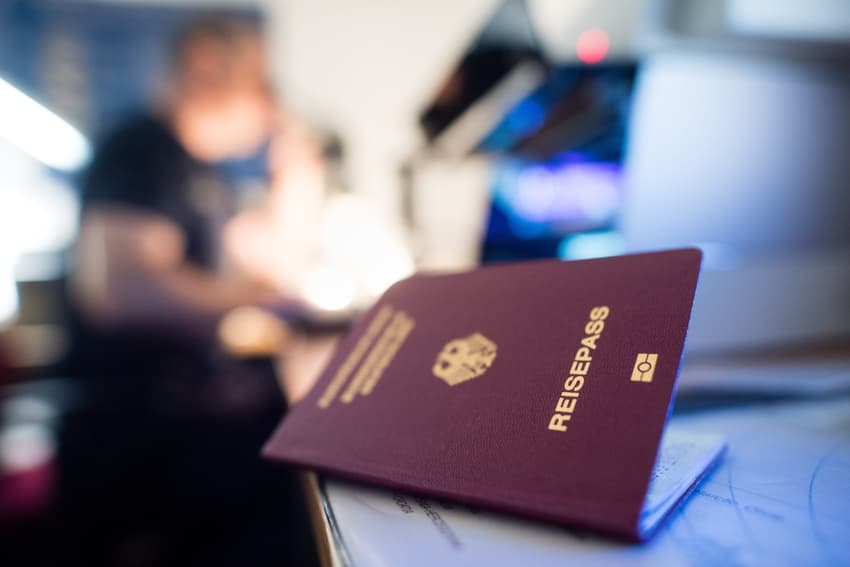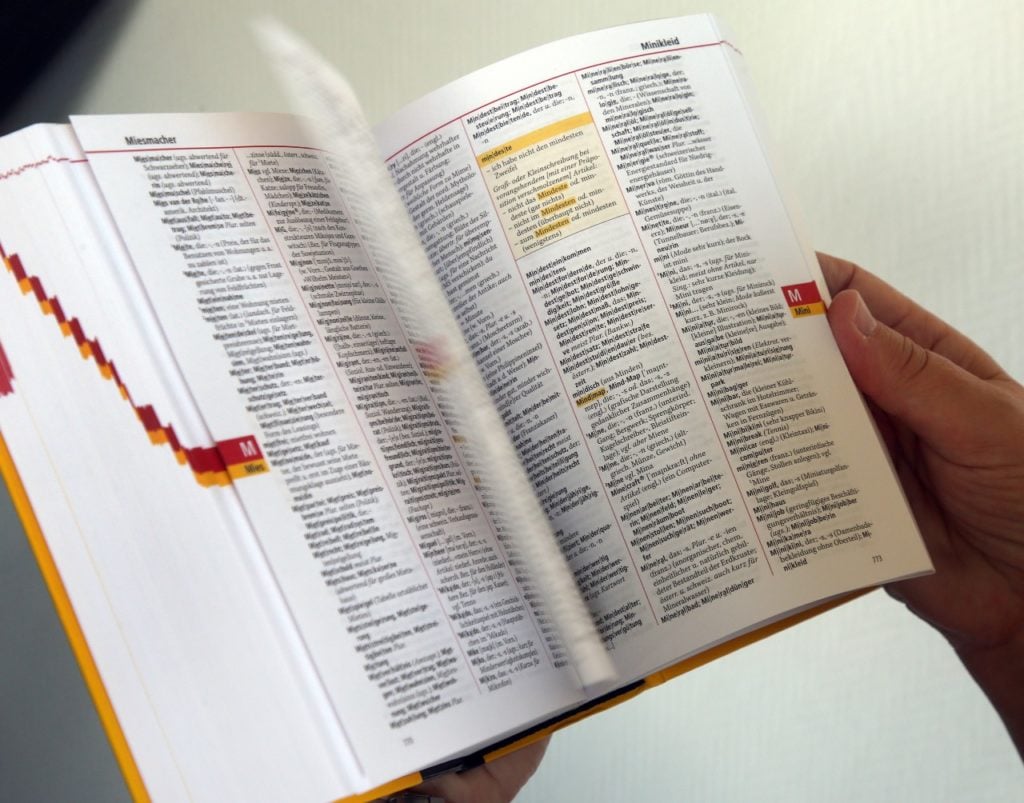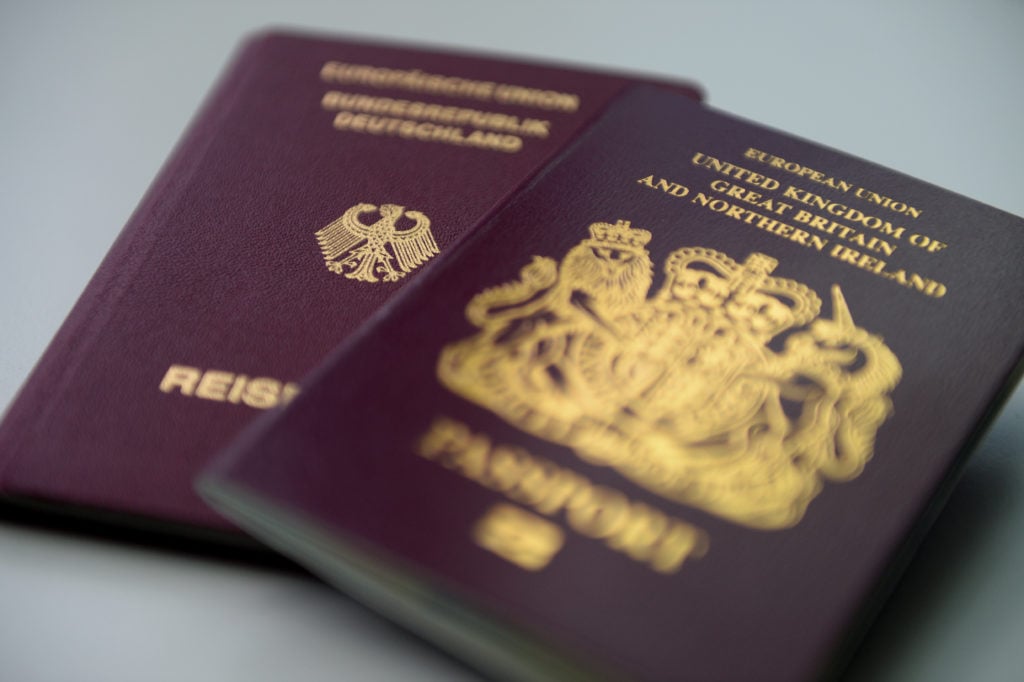How much does it really cost to apply for German citizenship?

When most people apply for German citizenship, they expect to pay some fees - but there are other hidden costs you may need to watch out for. We break down how much to budget for your citizenship application in Germany.
After building up your years of residence in Germany, learning the language and making a new life, you may want to apply for German citizenship.
But before you can become a "new" German, you'll have to go through a process known as naturalisation, which involves getting in touch with your local Einbürgerungsbehörde (Naturalisation Office) and submitting a number of documents.
Though the process isn't as complicated as many think it is, it does involve a fair bit of paperwork and a number of hidden costs that can add up. As well as the original application fee, you may have to shell out extra cash for things like translators, language tests and tax advisors as well.
Of course, you'll want to make sure you've got enough to cover these costs so you don't face unnecessary delays to your application.
So before you get started, these are some of the upfront (and hidden) costs you can expect when applying for German citizenship. To make things simpler, we've assumed you already have all the standard documents you need - such as a passport for you and your children - and don't need to apply for a new one of these.
We also haven't factored in the cost of things like integration and language courses that you may want to take in order to prepare.
Application fee: €255 (+€51 per child)
Since the list of documents required is slightly different for everyone, the cost of applying for citizenship will be more expensive for some than it is for others. However, one cost that everyone will have to reckon with is the €255 application fee, which is the same regardless of where you live in the country.
If you are applying for your child (or children) at the same time, you'll need to pay an additional €51 per child. This fee should be paid when you submit your application.
READ ALSO: The vocabulary you need to understand the German citizenship process
Official birth certificate translation: €40-€100
Another document almost all applicants for citizenship will need to submit is a notarised translation of your birth certificate.
This can vary hugely in cost, but you're unlikely to find a certified translator who'll do it for less than €40. Depending on where you are and how urgently you need it, €60-80 will probably be the average quote that you get.

A worker uses his laptop on a desk in a cafe. Photo: Anna Shvets/Pexels
Since the cost can vary so wildly, though, your best bet is to send a scan of your birth certificate to at least a handful of translators and ask them to give you a quote. If you don't need the document urgently, you may get a cheaper quote.
The Association of Interpreters and Translators (BDÜ) has a useful search function on their website where you can look for a translator. Just make sure you ticket the box for a 'certified' or 'sworn' translation since that's what you'll need for the application.
Official marriage certificate translation: €30-50
If you're married, you're likely to be asked for an official marriage certificate, which will need to be translated if it isn't already in German.
Once again, this should be a notarised translation carried out by a certified translator. You can find one by searching on the BDÜ website or simply using a search engine to search for "beglaubigte Heiratsurkunde Übersetzung" (certified marriage certificate translation).
Some websites allow you to simply upload your document and pay directly online. These tend to cost between €30 and €50 on average. However, you might find better deals by using the same translator for both your birth and marriage certificate translations.
Citizenship test: €25
Successfully passing the German citizenship test is an essential part of most citizenship applications.
You can find plenty of free online practice tests and questions online, so there's no need to shell out for a course, but registering for the exam costs around €25 at the Volkshochschule.
READ ALSO: EXPLAINED: What I was asked about in my German citizenship test
Language tests: €100-300
Depending on how long you've spent in the country, you'll generally need to prove either B1 or B2 German. There are some exceptions to this, such as if you've studied German at university or studied on a German-language university course, but most people will need to take a test and receive official confirmation of their level.

A woman consults the Duden German dictionary. Photo: picture alliance/dpa | Wolfgang Kumm
At present, you can naturalise after eight years with B1 German or after six years with B2. This is likely to change in the near future, with B1 required for naturalisation after five years and C1 required if you want to naturalise after three (along with other conditions).
Depending on the test you take and where you take it, you should generally budget around €200 for your test. The cheapest way to do it is usually at your local Volkshochschule, since this is heavily subsidised. Private language schools - and the Goethe Institute - will generally cost a fair bit more, particularly if you request expedited results.
READ ALSO: What’s the difference between B2 and C1 German for new fast-track citizenship?
Accountant's income confirmation: €150-1,500
If you are a freelancer and need to prove your average monthly income, you will probably need to do so by submitting both tax returns and an official confirmation of your earnings over the past three months.
This should be done by a professional tax consultant, who will probably charge you by the hour for this service. Once again, it pays to shop around, since quotes can vary from around €200 to over €1,000. As a rule of thumb, a standard hourly rate can is between €150 and €300.
Land registry excerpt: €10-20
If you own your home rather than renting, your case worker will likely want proof of this in the form of the Grundbuchauszug - or excerpt from the land registry.
If you don't have this already, you'll generally have to write to your local Grundbuchamt to request one. Generally, the extract will cost between €10 and €20, but this may be more if you use a third-party service to order one online.
Passport photos: €12-15
Everyone applying for citizenship will need to supply a recent passport photo along with their application. At current prices, you'll generally be shelling around anywhere between €12 and €15 for a set of four.
Postal costs: €5
This being Germany, you will most likely be required to submit all your citizenship documents in paper form via post.
To minimise the risk of your precious documents getting lost in the post, it's worth shelling out for the best tracked delivery available. Currently, a tracked 2kg parcel can be sent via DHL for €5.49.
Renouncing your citizenship (possibly €100-2,350)
Once Germany's new citizenship law comes into force, nobody will have to renounce their previous citizenship when becoming German.
At the moment, however, most non-EU citizens do need to give up any other nationalities they have when they naturalise.
If you have to renounce your citizenship to naturalise in Germany, this is another expense you will in some cases need to budget for. However, the costs can vary wildly from £372 in the UK to $2,350 in the United States.
Check government sources in your home country to find out what it would cost for you to renounce your passport. Some countries - such as Sweden - do not charge for this service.
Alternatively, you could simply wait for the law to change - potentially as soon as May.

A British and German passport. Photo: picture alliance/dpa | Britta Pedersen
Legal fees (optional)
Some people decide to hire a lawyer when applying for citizenship in order to assist with complications, family applications or simply handle the paperwork.
This is a major additional cost and won't be necessary for the vast majority of people, but if you do think it's worth it in your case, you should budget at least another €650 for this service.
Depending on your requirements and the complexity of your case, this figure can increase significantly, so be sure to get a realistic estimate of final costs before taking anyone on.
Other potential costs
This isn't by any means an exhaustive list of the costs you could incur when applying for citizenship.
As well as those listed above, you may find yourself facing travel expenses (i.e. to renounce your old citizenship in person), paying for certificates or other documents to be posted from your home country or shelling out money to renew outdated documents.
You can minimise these costs by planning ahead thoroughly and shopping around for services like translations or language tests. And just remember that the stress of the application will all be gone the moment you can hold that shiny new passport in your hands.
Comments (3)
See Also
After building up your years of residence in Germany, learning the language and making a new life, you may want to apply for German citizenship.
But before you can become a "new" German, you'll have to go through a process known as naturalisation, which involves getting in touch with your local Einbürgerungsbehörde (Naturalisation Office) and submitting a number of documents.
Though the process isn't as complicated as many think it is, it does involve a fair bit of paperwork and a number of hidden costs that can add up. As well as the original application fee, you may have to shell out extra cash for things like translators, language tests and tax advisors as well.
Of course, you'll want to make sure you've got enough to cover these costs so you don't face unnecessary delays to your application.
So before you get started, these are some of the upfront (and hidden) costs you can expect when applying for German citizenship. To make things simpler, we've assumed you already have all the standard documents you need - such as a passport for you and your children - and don't need to apply for a new one of these.
We also haven't factored in the cost of things like integration and language courses that you may want to take in order to prepare.
Application fee: €255 (+€51 per child)
Since the list of documents required is slightly different for everyone, the cost of applying for citizenship will be more expensive for some than it is for others. However, one cost that everyone will have to reckon with is the €255 application fee, which is the same regardless of where you live in the country.
If you are applying for your child (or children) at the same time, you'll need to pay an additional €51 per child. This fee should be paid when you submit your application.
READ ALSO: The vocabulary you need to understand the German citizenship process
Official birth certificate translation: €40-€100
Another document almost all applicants for citizenship will need to submit is a notarised translation of your birth certificate.
This can vary hugely in cost, but you're unlikely to find a certified translator who'll do it for less than €40. Depending on where you are and how urgently you need it, €60-80 will probably be the average quote that you get.

Since the cost can vary so wildly, though, your best bet is to send a scan of your birth certificate to at least a handful of translators and ask them to give you a quote. If you don't need the document urgently, you may get a cheaper quote.
The Association of Interpreters and Translators (BDÜ) has a useful search function on their website where you can look for a translator. Just make sure you ticket the box for a 'certified' or 'sworn' translation since that's what you'll need for the application.
Official marriage certificate translation: €30-50
If you're married, you're likely to be asked for an official marriage certificate, which will need to be translated if it isn't already in German.
Once again, this should be a notarised translation carried out by a certified translator. You can find one by searching on the BDÜ website or simply using a search engine to search for "beglaubigte Heiratsurkunde Übersetzung" (certified marriage certificate translation).
Some websites allow you to simply upload your document and pay directly online. These tend to cost between €30 and €50 on average. However, you might find better deals by using the same translator for both your birth and marriage certificate translations.
Citizenship test: €25
Successfully passing the German citizenship test is an essential part of most citizenship applications.
You can find plenty of free online practice tests and questions online, so there's no need to shell out for a course, but registering for the exam costs around €25 at the Volkshochschule.
READ ALSO: EXPLAINED: What I was asked about in my German citizenship test
Language tests: €100-300
Depending on how long you've spent in the country, you'll generally need to prove either B1 or B2 German. There are some exceptions to this, such as if you've studied German at university or studied on a German-language university course, but most people will need to take a test and receive official confirmation of their level.

At present, you can naturalise after eight years with B1 German or after six years with B2. This is likely to change in the near future, with B1 required for naturalisation after five years and C1 required if you want to naturalise after three (along with other conditions).
Depending on the test you take and where you take it, you should generally budget around €200 for your test. The cheapest way to do it is usually at your local Volkshochschule, since this is heavily subsidised. Private language schools - and the Goethe Institute - will generally cost a fair bit more, particularly if you request expedited results.
READ ALSO: What’s the difference between B2 and C1 German for new fast-track citizenship?
Accountant's income confirmation: €150-1,500
If you are a freelancer and need to prove your average monthly income, you will probably need to do so by submitting both tax returns and an official confirmation of your earnings over the past three months.
This should be done by a professional tax consultant, who will probably charge you by the hour for this service. Once again, it pays to shop around, since quotes can vary from around €200 to over €1,000. As a rule of thumb, a standard hourly rate can is between €150 and €300.
Land registry excerpt: €10-20
If you own your home rather than renting, your case worker will likely want proof of this in the form of the Grundbuchauszug - or excerpt from the land registry.
If you don't have this already, you'll generally have to write to your local Grundbuchamt to request one. Generally, the extract will cost between €10 and €20, but this may be more if you use a third-party service to order one online.
Passport photos: €12-15
Everyone applying for citizenship will need to supply a recent passport photo along with their application. At current prices, you'll generally be shelling around anywhere between €12 and €15 for a set of four.
Postal costs: €5
This being Germany, you will most likely be required to submit all your citizenship documents in paper form via post.
To minimise the risk of your precious documents getting lost in the post, it's worth shelling out for the best tracked delivery available. Currently, a tracked 2kg parcel can be sent via DHL for €5.49.
Renouncing your citizenship (possibly €100-2,350)
Once Germany's new citizenship law comes into force, nobody will have to renounce their previous citizenship when becoming German.
At the moment, however, most non-EU citizens do need to give up any other nationalities they have when they naturalise.
If you have to renounce your citizenship to naturalise in Germany, this is another expense you will in some cases need to budget for. However, the costs can vary wildly from £372 in the UK to $2,350 in the United States.
Check government sources in your home country to find out what it would cost for you to renounce your passport. Some countries - such as Sweden - do not charge for this service.
Alternatively, you could simply wait for the law to change - potentially as soon as May.

Legal fees (optional)
Some people decide to hire a lawyer when applying for citizenship in order to assist with complications, family applications or simply handle the paperwork.
This is a major additional cost and won't be necessary for the vast majority of people, but if you do think it's worth it in your case, you should budget at least another €650 for this service.
Depending on your requirements and the complexity of your case, this figure can increase significantly, so be sure to get a realistic estimate of final costs before taking anyone on.
Other potential costs
This isn't by any means an exhaustive list of the costs you could incur when applying for citizenship.
As well as those listed above, you may find yourself facing travel expenses (i.e. to renounce your old citizenship in person), paying for certificates or other documents to be posted from your home country or shelling out money to renew outdated documents.
You can minimise these costs by planning ahead thoroughly and shopping around for services like translations or language tests. And just remember that the stress of the application will all be gone the moment you can hold that shiny new passport in your hands.
Join the conversation in our comments section below. Share your own views and experience and if you have a question or suggestion for our journalists then email us at [email protected].
Please keep comments civil, constructive and on topic – and make sure to read our terms of use before getting involved.
Please log in here to leave a comment.